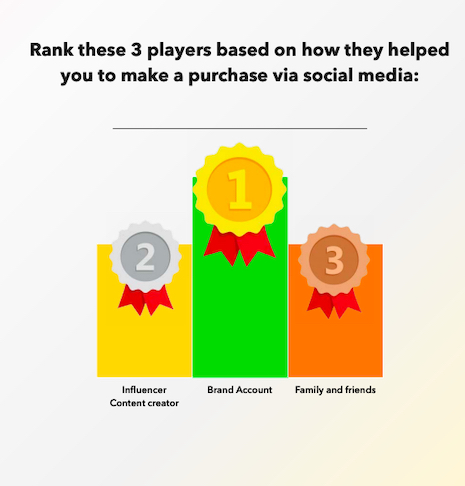 Social commerce in the U.S. is anticipated to increase to $96 million this year. Image credit: Afterpay
Social commerce in the U.S. is anticipated to increase to $96 million this year. Image credit: Afterpay Social commerce is thriving, as consumers continue to value the convenience and benefits of mobile shopping and influencer recommendations.
According to Influencer Marketing Factory's Social Commerce 2022 report, 82 percent of survey respondents reported discovering a product on social media and purchasing it directly on their phones. Social shopping offers another mutually beneficial tool between consumers and brands with convenience and additional revenue streams at the helm.
“Social commerce will help brands increase their mobile conversion rates and decrease cart abandonment rates,” said Alessandro Bogliari, cofounder/CEO of The Influencer Marketing Factory, in a statement.
“It will also support influencers in terms of additional revenue streams, such as affiliate fees when they sell third-party items and better margins on their own merchandising, products, and services,” he said. “Our survey shows that there is a lot of interest and potential in social commerce, thanks to new social media features and tools and I can’t wait to see its future development.”
Influencer Marketing Factory surveyed 1,000 U.S. consumers, from Dec. 9 and Dec. 14, 2021, with a target audience of users between 16 and 54 years old and a focus on Gen Z and Millennials, on their social commerce habits.
Add to cart
Social media already offers a world of recommendations, convenience and payment options to consumers who spend a great deal of time connected to their mobile devices. Social commerce is defined as the process of selling and buying products directly on social media.
 Social commerce continues to grow with younger consumers. Image credit: Getty
Social commerce continues to grow with younger consumers. Image credit: Getty
Forty percent of respondents said they preferred online shopping, 13 percent said they preferred in-store shopping and 47 percent said they preferred a mix of both. Twenty-nine percent of respondents said they shop on social media once a week.
Social commerce is multifaceted, with offerings ranging from livestreaming shopping events to influencer suggestions and unboxings.
Fifty-seven percent of consumers reported purchasing something during a livestream shopping event, while 39 percent strongly agree that they enjoy discovering new products during live shopping events.
Four in 10 strongly agree they like to take advantage of special discounts offered by influencers, while 42 percent strongly agree that they prefer to check out directly on a social media app as opposed to doing so on a third-party website.
Fifty-eight percent of respondents also reported using a buy now, pay later service, reflecting a 36 percent increase year-over-year.
 Shoppers receive their social commerce recommendations from several sources. Image credit: The Influencer Marketing Factory
Shoppers receive their social commerce recommendations from several sources. Image credit: The Influencer Marketing Factory
According to Insider Intelligence, Facebook is currently the highest-performing social commerce platform in the U.S., recording 56.1 million buyers in 2021, as Instagram trails in second place with 32.4 million.
Social commerce in the U.S. grew to $80 million in 2020, and is anticipating an increase to $96 million this year, according to market research company eMarketer.
Catching on globally
One market that excels in social commerce is China, known as a source of “super apps” with a plethora of features.
In 2020, China reported more than $162 billion in livestreaming ecommerce sales, with 617 million people having watched livestreaming shopping events (see story).
Although China has carved itself a space as a leader in the social commerce arena, affinity for this kind of shopping is expected to continue growing and spreading globally.
Globally, social commerce is growing rapidly, driven by Gen Z and millennial shoppers, according to new research from Accenture.
A recent study finds that the $492 billion social commerce industry is expected to grow to $1.2 trillion by 2025. With such dramatic growth, especially during the time of continued COVID-19 restrictions, retailers and brands have ample opportunity to position themselves in front of shoppers to ensure increased revenue (see story).
“Social media is no longer a place to advertise, and advertise only,” said Chloe Cox, social strategy and insight consultant at Wunderman Thompson Commerce, in a statement. “Instead – social platforms need to provide a rich and engaging experience to entice the audience to shop in the first place.
“When it comes to the future of social commerce, the sky is the limit, and the race to becoming the social commerce leader is on, whether that be a brand, a social platform, or a social creator.”